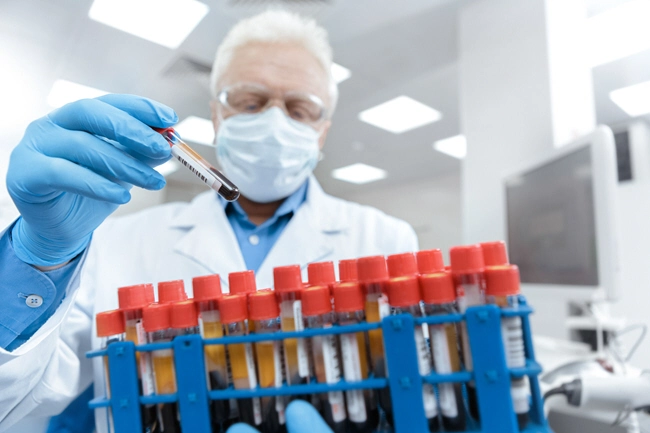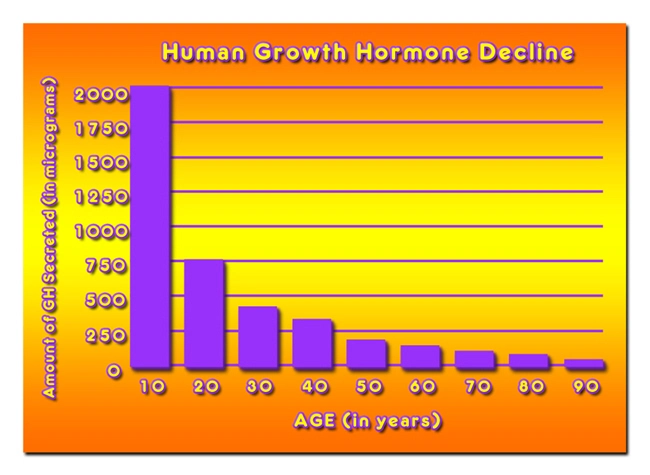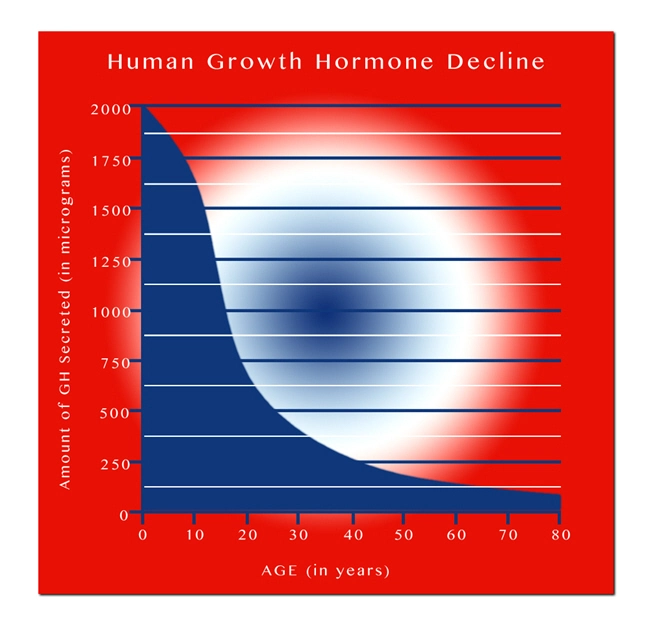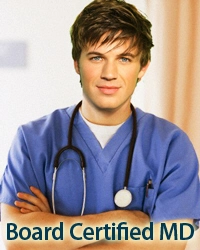
As one cocky news reporter put it, "Unless you're sleeping under a rock, you've probably heard about Human Growth Hormone." We see HGH mentioned on TV news or have read about it in all the leading newspapers and magazines, or on the Internet.
Athletes and famous Hollywood actors are using HGH for everything from sports enhancement, anti-aging purposes, skin, brain, muscle, joint, and organ regeneration, to turn back the clock, or for only to look and feel younger inside and out.
Internationally recognized Rocky and Rambo star, Sylvester Stallone, was busted in Australia with HGH and allegedly "misplaced" his doctor's prescription.
Video Link: https://vimeo.com/284823403
Video Download: Click Here To Download Video
Video Stream: Click Here To Stream Video
Video Link: https://vimeo.com/284822673
Video Download: Click Here To Download Video
Video Stream: Click Here To Stream Video
Video Link: https://vimeo.com/284821819
Video Download: Click Here To Download Video
Video Stream: Click Here To Stream Video
Video Link: https://vimeo.com/284821016
Video Download: Click Here To Download Video
Video Stream: Click Here To Stream Video
Video Link: https://vimeo.com/284820313
Video Download: Click Here To Download Video
Video Stream: Click Here To Stream Video
How To Inject HGH
He was reprimanded and had to pay a $2,000 fine. Stallone, who is in his 60's, but has the energy and vitality of a 35-year-old athlete, credits part of his quality of life directly to HGH. Mr. Stallone has publicly stated to the media, to paraphrase, that in 10 years (or less) HGH will become an over-the-counter product.
When the smoke of controversy clears, and Congress looks closer at the thousands of research studies on HGH, Stallone's statements might prove right -- until then, HGH requires a doctor's prescription.
Since "winning is everything," HGH is being used by many prominent professionals and Olympic athletes in every sport known to humankind, for significant performance enhancement (yes, even "brain sports," such as chess and poker), more specifically, to create a real quantifiable advantage over competitors.
But, the use of HGH is not FDA-approved for sports enhancement or bodybuilding, and therefore, HGH use is illegal for these two specific purposes, which causes many people to think HGH is completely illegal.
HGH is, however, not illegal for adults over the age of 30 seeking genuine anti-aging and regeneration medicine to overcome HGH deficiencies, aka "premature" aging.
The two search engines, Google and Yahoo, which control about 90% of total Internet searches, show the terms HGH or Human Growth Hormone, are searched beyond 20,000 times per day online!
As a result of the explosive popularity of HGH, to be used for more than just legitimate medical anti-aging purposes, Congress and the FDA are holding hearings and creating even more controversy over this very misunderstood, but beneficial, substance: Human Growth Hormone.
HGH Information
The Big Picture: "What is HGH?" is becoming a common question, since almost every other day, HGH is mentioned in the media regarding its use by athletes, or breaking research emerges concerning the benefits of its use.
Somatotropin or Growth Hormone (GH)
HGH, or Human Growth Hormone, is created in the base and center of the brain. More specifically, in the rear portion of the anterior lobe of the Pituitary Gland.
The Pituitary Gland has two primary lobes, the anterior or front lobe, and the posterior or back lobe. HGH is made in the back of the front lobe of the Pituitary Gland.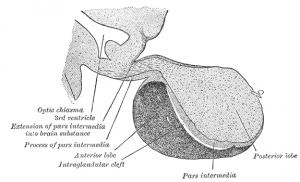
HGH is a delicate, unique, and vital hormone protein, which is the largest in the body and has a variety of beneficial purposes in the human body.
The most important feature is the stimulation of the growth, development, and regeneration of healthy cells throughout the human body.
Virtually every organ and system in the body is dependent on HGH for proper growth, development, and function. Therefore HGH is considered by many specialized medical experts in the field of anti-aging, longevity, and cell regeneration medicine, to be the master hormone.
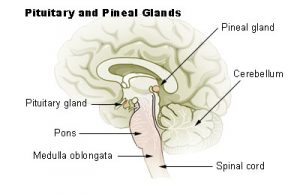 "What is a Hormone?" A hormone (from the Greek "impetus" or a moving force; impulse; stimulus) is a chemical messenger that carries a signal from one cell (or group of cells) to another, via the blood. In general, hormones regulate the function of their target cells -- the cells receiving the hormone.
"What is a Hormone?" A hormone (from the Greek "impetus" or a moving force; impulse; stimulus) is a chemical messenger that carries a signal from one cell (or group of cells) to another, via the blood. In general, hormones regulate the function of their target cells -- the cells receiving the hormone.
The action or net effect of hormones is determined by many factors, including its pattern of release into the human body, and the response of the receiving cells.
"What does Human Growth Hormone look like?" HGH is a protein hormone made up of a chain of 191 amino acids, also known as a polypeptide ("poly-" is Latin meaning "many" -- many peptides -- many amino acids), which form a circular shape.
The Largest Protein in the Human Body: The Master Human Growth Hormone (HGH) Molecule
"How is Human Growth Hormone made in the Human Body?" HGH is created and secreted into the blood stream by the anterior (back part) lobe of 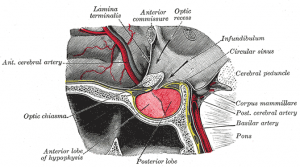 the Pituitary Gland (which looks like a garbanzo bean) at the central base of the brain.
the Pituitary Gland (which looks like a garbanzo bean) at the central base of the brain.
More specifically, in the rear portion of the Pituitary Gland, there is a kind of stack of cells called Somatotropes, which make up about 40 to 50% of the anterior (back) of the Pituitary Gland, these cells act as a factory, pumping out this essential HGH protein.
The Human Growth Hormone (HGH) On and Off Switch There seem to be two or more factors regulating the release, decrease and cease, of HGH. The Hypothalamus in the bottom (base) back of the brain, metaphorically acts, to a great extent, as the on and off switch of HGH production.
Research on how to Stop HGH Production Permanently In a research study by scientist Reichlin and his colleagues, where the connection from the Hypothalamus to the Pituitary Gland was cut off (sectioned off), the Pituitary stopped producing healthy levels of HGH.
This showed that the Hypothalamus, which produces the Growth Hormone Releasing Hormone (GHRH), is the dominant source of stimulating the Pituitary Gland to produce HGH. Also see http://www.sermorelin.com regarding using the hormone: Growth Hormone-Releasing Hormone to stimulate HGH release in the body (more affordable approach to increasing HGH in the body).
"The HGH ON Switch" The Hypothalamus plays a significant role in HGH production and produces GH-RH (also see Sermorelin), the precursor to stimulate HGH production in the Pituitary Gland. In other words, or layman's terms, the Hypothalamus uses GH-RH (growth hormone-releasing hormone) to metaphorically tell the Pituitary Gland HGH "Factory," to kick-start the HGH assembly line production.
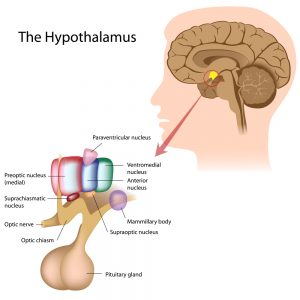 "The HGH OFF Switch" The Hypothalamus and body also play a role in the manufacture of somatostatins (the OFF switch or simply HGH "Blockers"), to shut down or decrease HGH production in the Pituitary Gland. In layman's terms, the body releases somatostatins to tell the HGH assembly line to shut off.
"The HGH OFF Switch" The Hypothalamus and body also play a role in the manufacture of somatostatins (the OFF switch or simply HGH "Blockers"), to shut down or decrease HGH production in the Pituitary Gland. In layman's terms, the body releases somatostatins to tell the HGH assembly line to shut off.
"How is HGH released in the body and what is its frequency?" HGH is primarily released in pulses that take place during the beginning phases of sleep, with the highest release at the latest stages of sleep, which is why it is essential to get a minimum of eight hours of restful sleep.
People who do not get proper sleep have shorter lifespans and sometimes suffer from HGH deficiencies. During the 24-hour cycle of the day, HGH is released in smaller pulses, about 30 in total.
"What happens when HGH is released in the body?" Once the Pituitary Gland secretes HGH, it circulates in the blood stream, throughout the body and the brain, and absorbed by the liver, where it converts into growth factors, the most important one being IGF-1.
Growth Hormone is rapidly converted in the liver, to a powerful growth-promoting metabolite, an insulin-like growth factor -- type 1 (IGF-1, also referred to as Somatomedin C).
IGF-1 Insulin-like Growth Factor One IGF-1 causes most of the effects associated with HGH. It is measured in the blood to determine the level of Growth Hormone Secretion. Most of the benefits of HGH are directly attributable to its stimulation of IGF-1. These growth factors are the messengers that carry the messages to the cells of the body.
This communication regulates the growth of cells, telling them when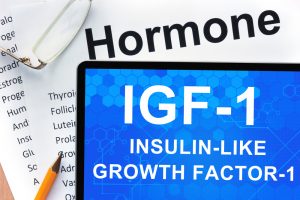 to live and when to die. Cell reproduction slows down with aging unless the cells are prompted by the growth factors of HGH.
to live and when to die. Cell reproduction slows down with aging unless the cells are prompted by the growth factors of HGH.
Therefore, it could be said that HGH is the precursor of IGF-, that is to say, HGH is what stimulates the body (the liver) to produce IGF-1.
HGH Human Growth Hormone Replacement Therapy Using a Pre-Cursor Secretagogue Analog (Sermorelin)
Secretagogue is a substance that promotes secretion, for instance, the Secretagogue for HGH production, i.e., the content that tells your Pituitary Gland to increase HGH production is GH-RH (growth hormone-releasing hormone) which comes from the hypothalamus.
Sermorelin (http://www.sermorelin.com) is a polypeptide chain that mimics the effects of GH-RH (the substances that naturally tell your Pituitary Gland to increase HGH production. )
GH-RH Therapy: Sermorelin therapy, is an HGH "Secretagogue" delivered through subcutaneous injection -- GH-RH. Growth Hormone Deficiency in adults occurs when the naturally occurring pituitary hormone known as HGH is produced in small quantities, with a resulting deficiency in Growth Hormone and IGF-1 levels in the bloodstream.
Growth Hormone deficiency includes a spectrum that ranges from a complete lack of Growth Hormone to varying degrees of partial Growth Hormone Deficiency. Most people after the age of 25 to 30, begin a process of HGH deficiency, which accelerates at a loss rate of 1% to 2% per year, depending on one's genetic makeup, diet, exercise, and lifestyle.
In contrast to supplementing the Growth Hormone deficiency through injections of exogenous recombinant HGH, another therapy, GH-RH therapy, involves the use of GH-RH doses which cause and stimulate the body's Pituitary Gland to secrete more significant quantities of naturally produced HGH (Sermorelin injections).
The body, therefore, usually produces its own Growth Hormone to supplement the deficiency as a result of GH-RH Therapy. Sermorelin is the acetate salt of an amidated synthetic amino acid polypeptide, consisting of the first 29 of 44 amino acids of naturally occurring HGH-releasing hormone (GH-H) in the body.
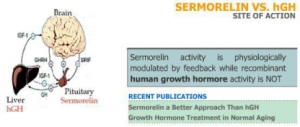 Sermorelin Acetate is the last of the hypothalamic-releasing hormones (stimulates HGH) to be identified and characterized and represents the shortest fragment of GH-RH known to possess the full biological activity of the parent hormone referred to as the HGH-releasing hormone (GH-H) Growth Hormone-releasing hormone.
Sermorelin Acetate is the last of the hypothalamic-releasing hormones (stimulates HGH) to be identified and characterized and represents the shortest fragment of GH-RH known to possess the full biological activity of the parent hormone referred to as the HGH-releasing hormone (GH-H) Growth Hormone-releasing hormone.
In contrast to increasing Growth Hormone levels by the injection of biosynthetic or Bio-identical HGH, GH-RH injections increase plasma Growth Hormone concentrations in patients with an idiopathic Growth Hormone deficiency, by directly stimulating the Pituitary Gland to release natural HGH.
Sermorelin Acetate for injection (GH-RH ) is similar to natural GH-RH with its ability to boost HGH secretion in humans.
Sermorelin is an affordable approach to increasing HGH in the body for those who are price-sensitive. GH-RH for injection has been useful in the treatment of Growth Hormone deficiency in children.
The clinic anticipates that GH-RH will also be effective in the treatment of adult Growth Hormone deficiency because it has been useful in the treatment of children, and because HGH has already proven itself effective in cases of Adult Growth Hormone Deficiency.
The GH-RH used by the clinic has been studied for 12 years in more than 70 clinical trials, in over 2,600 child patients, totaling more than 485 patient-years of treatment.
Growth Hormone-releasing hormone for injection was approved for use in children with Growth Hormone deficiency (GHD), by the FDA in 1997, and became available to the clinic in 1998. It is an experimental hospital treatment with regards to adult patients who are prescribed about half the dose of a small child.
Prior clinical approval is required to participate in the adult clinical trial program conducted by the hospital. This therapy has excellent potential for adults who have Growth Hormone Deficiency, and seek to reverse the effects of aging or treat a medical disorder.
A patient who is dissatisfied with the results obtained through GH-RH therapy may elect to be treated after that with HGH replacement therapy, or vice versa.
Growth Hormone Declines with Aging. The decrease of Growth Hormone with age is directly associated with many of the symptoms of aging, including cardiovascular disease, increased body fat, osteoporosis, wrinkling, gray hair, decreased energy, reduced sexual function and interest, and other premature aging symptoms.
Many of these symptoms are in younger adults who have Growth Hormone Deficiency.
Research over the last 40 years confirms the decline of HGH as we age in our adult years, and the fall of HGH production accelerates as we get older.
After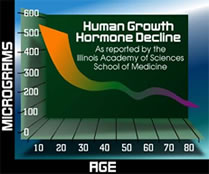 the age of 30, our bodies are not stimulating the regeneration of new healthy cells as fast as they are dying off, and as a net result, aging seems to be the process of our bodies slowly dying more quickly, as it can replace itself with healthy cells at first, but the dying process accelerates as we continue to age.
the age of 30, our bodies are not stimulating the regeneration of new healthy cells as fast as they are dying off, and as a net result, aging seems to be the process of our bodies slowly dying more quickly, as it can replace itself with healthy cells at first, but the dying process accelerates as we continue to age.
HGH is produced at a rate that peaks during adolescence when accelerated growth occurs. Growth Hormone secretion decreases with age in every animal species tested, thus far.
In humans, the amount of Growth Hormone after the age of 25 to 30, declines about 14% per decade (or 1% to 2% per year), therefore, total daily Growth Hormone production is reduced dramatically with age.
In numerical values, we produce on a regular basis about 500 micrograms of Growth Hormone at age 20, 200 micrograms at age 40, and 25 micrograms at age 80. At age 40 our Growth Hormone production is only 40% of what we produced at age 20.
The fall in IGF-1 levels with age is identical to the decline of Growth Hormone. More research and scientific experiments have shown that by the age of 40, our HGH production is down to 50% of youthful levels.
By the age of 55, it sinks to 20%, which is not much more than someone in their 80s can produce.
Growth Hormone Decreases Significantly after the age of 35 to 45. Scientists do not know the exact reason why persons over the age of 35 to 45 tend to incur such a significant decrease in Growth Hormone secretion from the Pituitary Gland, with the result causing symptoms of aging and andropause, i.e., HGH deficiency.
Some medical research has revealed that the aging Pituitary somatotroph cells can still secrete as much Growth Hormone as the young somatotroph cells if they are correctly and adequately stimulated.
As a result, some researchers have come up with several theories regarding aging resulting from HGH-related deficiency.
GH "Blockers" (called Somatostatins) increase with age. Some research scientists believe the problem of HGH deficiency lies with somatostatins (HGH "blockers"), the natural inhibitor (blocker) of HGH.
Somatostatin concentrations have been found to increase within the body with age and may act to block the pituitary's release of GH. When researchers eliminated somatostatin production in old rats, they found Growth Hormone secretion to be as high as those of young mice.
This might indicate, theoretically, that the Pituitary Gland has a life-long ability to produce any healthy level of GH we might desire.
GH Stimulators Decrease with Age. 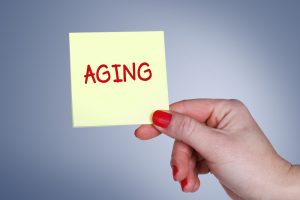 A second theory concerning the reduction of GH as we age is that the precursor hormone, Growth Hormone-Releasing Hormone (GH-RH), which stimulates GH release by the Pituitary Gland, becomes less sensitive to signals from the Hypothalamus.
A second theory concerning the reduction of GH as we age is that the precursor hormone, Growth Hormone-Releasing Hormone (GH-RH), which stimulates GH release by the Pituitary Gland, becomes less sensitive to signals from the Hypothalamus.
Hence, insufficient GH-RH is released, resulting in a decrease of Growth Hormone secretions over time and age. See Sermorelin and the section on Growth Hormone-Releasing Hormone.
The Body Requires More GH as We Age, or the Body Loses its Ability to Utilize GH as We Age. A third theory concerning GH decline or deficiency is that not only does the Growth Hormone secreted and available to receptors in our cells decrease with age, but that the cell receptors become more resistant and less responsive to the GH.
Under this theory, aging is a disease of Growth Hormone resistance within our cell receptors, similar to the way in which diabetes is an illness of insulin resistance.
The Benefits of Replacing GH with Injections or HGH Replacement Therapy. HGH, although controversial, is considered by some scientists, doctors, and researchers, to be one of the single most crucial proteins/hormones in human development, health, regeneration, wellness, and longevity.
A growing number of Anti-Aging, Longevity, and Cell Regeneration doctors swear by HGH and consider HGH replacement therapy to be a revolution in medicine.
Benefits of HGH. Most importantly, clinical evidence and recent medical research clearly demonstrate that by replacing GH in IGF-1 deficient adults, we can significantly eliminate premature aging symptoms.
We can also reverse the biological effects of aging, reduce body fat, increase lean muscle mass, strengthen the immune system, improve sexual performance and libido, lower blood pressure, lower cholesterol, restore hair color and growth, increase bone tissue, strengthen the heart, regenerate organs and increase energy.
There is no other substance known to medical science that has such an extensive and well-documented ability to deter and reverse the aging process as HGH.
Also, as we examine more carefully the evidence accumulated by medical research and the interaction between Growth Hormone and the various bodily systems and cell regeneration that affect the areas benefited, we develop an understanding as to how an increased level of Growth Hormone results in so many beneficial effects on the entire body.
Some studies have suggested HGH replacement therapy might extend the human lifespan by 10 to 20 years, as long as a health-conscious lifestyle is included as a part of the doctor-monitored HGH therapy program.
Bone Density and HGH. During Growth Hormone therapy, there is a definite improvement in bone density. One study showed an increased bone mass of 2% per year.
Skin and HGH Growth Hormone restores abnormal low levels of extracellular fluid. This cellular dehydration is implicated in many of the signs of aging. By replenishing this extracellular fluid, skin becomes thicker, and wrinkles become less noticeable.
extracellular fluid, skin becomes thicker, and wrinkles become less noticeable.
Also, there is the normalization of kidney function and improvement in sweating capacity. Look closely at the skin of younger people and older people; you will notice several factors that indicate age.
1. Smoothness of the skin 2. thickness of the skin 3. discoloration and age spots 4. wrinkles 5. suppleness
Among other factors, HGH has been shown to shift human skin towards more vitality and youthfulness.
Children, teenagers, and young adults with Growth Hormone deficiency have experienced the signs of premature aging of the skin with the skin more closely resembling the skin of significantly older people.
Weight Management and HGH. Growth Hormone induces the decomposition of adipose tissue. The fat cell volume will decrease significantly. Metabolism is increased, which results in the degradation of fat.
Also, cholesterol is lowered. There is a consistent improvement in this parameter with a usual 10% increase in lean body mass and a 5-10% decrease in body fat. Fat loss was highest in the abdominal region.
The alterations in body composition are reversed. The lean body mass increases, as the adipose tissue decreases.
This accounts for the fact that there may not always be an overall weight loss because of the increased muscle mass. Also, HGH affects the liver, kidneys, spleen, skin, and bone, and is protective against atrophy, by causing re-growth of tissue.
HGH for Sale, Buying HGH, Getting HGH. Acquiring HGH requires a prescription from a medical doctor. Many people who look for an easy route to get Human Growth Hormone to look to black-market  Mexican and Chinese sources. These sources are not as potent and may contain harmful substances.
Mexican and Chinese sources. These sources are not as potent and may contain harmful substances.
Some people have gotten infections or died as a result of using black market HGH. Do not go the illegal route; the legal path is the best way to go.
Side Effects and Dangers of HGH Abuse
HGH has been shown, in some studies, to have side effects which include Carpal Tunnel Syndrome, Arthritis, edema (swelling), water retention, joint pain, Gigantism (abnormal bone growth), and bloating.
Side effects are typically experienced with high dose abuse over long periods of time. One should also wholly avoid HGH if they have cancer or high risk or prevalent family history of cancer, especially prostate and reproductive cancer.
HGH stimulates cell reproduction and regeneration, which can have a dangerous effect on one who has cancer. Long-term abuse of HGH can also cause the Pituitary Gland to produce less GH for a while -- how long depends on the person, lifestyle, and the damage level.
Studies have shown that the pituitary gland can produce healthy levels of Growth Hormone when stimulated throughout the entire human lifespan.
Avoid Side Effects Initially: Numerous studies have shown side effects can be avoided by a slow initial administration, proper monitoring of levels, and usage of HGH on a daily basis in what is called a low-dose, high-frequency method.
Ongoing side effects can be avoided in an HGH replacement therapy program when one avoids high doses of HGH over an extended period and continues to monitor their blood by getting bi-yearly blood work analysis.
Typical Protocol of HGH A standard protocol utilizing low doses has shown to have the best effects. General Range: A generic protocol for someone over the age of 35, deficient in GH/IGF-1, and showing signs of Andropause, is approximately 1 to 2 IU per day, with five days on (Monday through Friday using 1IU per day) and two days off (Saturday and Sunday = no usage of HGH).
day, with five days on (Monday through Friday using 1IU per day) and two days off (Saturday and Sunday = no usage of HGH).
This is not an exact, but only a general range.
To come up with a more precise HGH therapy protocol, the physician must review the patient's current blood work analysis, physical exam (including blood pressure, height, weight, and age), medical questionnaire for studying the patient's medical history, lifestyle, and patient personal health goals.
Avoid bodybuilder doses of 3 or more IU per day.
What is the Best Time of Day to Inject HGH Some research has shown the best time to take HGH injections is in the morning, upon awakening.
Other research has also demonstrated the majority of naturally produced GH is pulsed from the Pituitary Gland at night. This has led to further studies showing that a once-a-day injection routine taken at night seems to have the most beneficial effect, while some have found doses in the morning provide the best results.
A third option is distributed dosing.
Spread Dosing: Using Two or More Injections of HGH a Day. Some researchers have administered HGH injections twice daily. A typical dose is split up, once in the morning upon awakening, and once at night before going to sleep.
The two low-dose methods:
1. In the two low-dose method approach, when a small dose is used before working out and then again after working out, people have reported the best gains in physical regeneration, regenerating the muscles, burning fat, and improving body composition.
2. Others have stated, when doing the two low-dose methods, of getting the best results when they do a small dose in the morning on an empty stomach and then again 30 minutes before going to sleep.
They reported great sleep, and a general feeling of well-being, focus, and energy during the day, and depression was also decreased. Generally, however, most common protocols recommend one time per day for convenience so that patients don't feel like they are a "pin cushion."
common protocols recommend one time per day for convenience so that patients don't feel like they are a "pin cushion."
Best Results using Injectable HGH: Guide to Longevity and Cell Regeneration Medicine and Understanding These Most Crucial Elements An HGH protocol that works best for you must be customized to your height, weight, age, blood work, physical exam, and medical history.
There is no one-size-fits-all program when doing an HRT (Hormone Replacement Therapy) program using HGH.
In general, to get the best results in an HGH replacement therapy program, incorporate a consistent health-conscious lifestyle:
- Intense Regular Exercise: including cardiovascular exercise 45 minutes a day, four days a week, and weight lifting, every other day (four days a week)
 upper and lower body on alternating days. If time is a factor and depending on your busy work schedule and lifestyle, try to at least exercise a minimum of four to six times a week, doing aerobic activities (running, jogging, bicycling, dancing), in conjunction with some weight training. HGH can increase one's appetite and metabolism; exercise has been found to be the best way to help quench hunger and cravings. Proper nutrition with high nutrient density and 5 to 6 small meals a day is another way to satisfy the increase in appetite that can sometimes be caused by HGH.
upper and lower body on alternating days. If time is a factor and depending on your busy work schedule and lifestyle, try to at least exercise a minimum of four to six times a week, doing aerobic activities (running, jogging, bicycling, dancing), in conjunction with some weight training. HGH can increase one's appetite and metabolism; exercise has been found to be the best way to help quench hunger and cravings. Proper nutrition with high nutrient density and 5 to 6 small meals a day is another way to satisfy the increase in appetite that can sometimes be caused by HGH. - HGH and Supplements: Most RDA recommendations for vitamins, minerals, and supplements, in general, are insufficient. Take a comprehensive multivitamin and mineral complex, vitamin D and calcium supplements, amino acids (help stimulate natural GH production), right-brain formula, and Omega 3 (fish oil) supplements. And get a good healthy dose of sunlight, 30 minutes per day for overall vitamin D synthesis. Ocean water also has a lot of healthy amounts of minerals which are excellent for the skin.
- HGH and Diet Recommendations: a low-calorie diet of raw, warm, and steamed foods, do not go more than 3 hours during a day without eating something. Make sure you drink at least eight large glasses of water per day. Eat five to six small meals per day. Strictly follow a healthy, nutritious, nutrient-dense, and calorie-restricted diet. Limit consumption of sugar (a study showed that sugar diminishes GH secretion). Several studies have shown that being overweight and suffering from
 obesity can significantly shorten one's lifespan, and lead to a higher incidence of a host of diseases -- especially cancer. Repeated studies have shown that moderate caloric restriction can prolong lifespan by up to 30% in humans and animals. The best diet, based on human evolution, is one involving eating raw foods; eating enough fresh fruits, raw and steamed vegetables, nuts, grains, and seeds. Avoid processed foods to the best of your ability.
obesity can significantly shorten one's lifespan, and lead to a higher incidence of a host of diseases -- especially cancer. Repeated studies have shown that moderate caloric restriction can prolong lifespan by up to 30% in humans and animals. The best diet, based on human evolution, is one involving eating raw foods; eating enough fresh fruits, raw and steamed vegetables, nuts, grains, and seeds. Avoid processed foods to the best of your ability. - Try to eat organic foods, because non-organic foods have pesticides that can cause genetic damage and upset your hormone levels. Therefore, eat enough calories from organic fruits, vegetables, meat, eggs, and fish at a range that will not put your body in starvation mode (consult a doctor). Try to avoid alcohol, caffeinated or carbonated drinks, processed cereal fiber, non-organic milk products. Make fighting obesity the central focus of your diet. Fat tissue is rich in Aromatase enzymes, and converts testosterone to estradiol, and inactivates testosterone. Estradiol (17?-estradiol, also oestradiol) is a sex hormone. Mislabelled the "female" hormone, it is also present in males; it represents the primary estrogen in humans.
GH and Exercise: Exercise Stimulates Natural GH Production Regular exercise is the best way to naturally increase your GH production and your body's ability to process it.
Moreover, aging is associated with weaker muscles, lower bone mass, and less flexibility. Therefore make stretching (like yoga) a part of your daily routine. Several studies have shown that exercise prolongs life, decreases heart disease, and lowers high blood pressure and stroke rates.
Aerobic exercise is paramount for maintaining a healthy vascular system, which is a central factor in longevity, vitality, and health.
HGH and Dietary Supplements Take adequate amounts of nutrients and supplements. Take a good multi-vitamin that requires you to take more than one vitamin per day, so the supplements are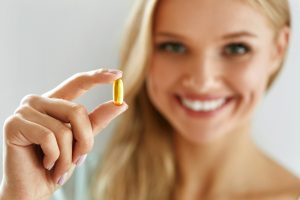 spread out over a given day. Be sure your supplement regimen has enough antioxidants.
spread out over a given day. Be sure your supplement regimen has enough antioxidants.
The RDA (Recommended Daily Allowance) is usually insufficient for the desired health effects. In the American Academy of Anti-Aging Medicine Desk Reference, you can find out about the recommended doses.
Take the time to do the research. You might also want to get blood work done to see which vitamins and minerals your body has a problem metabolizing, and think about increasing that particular vitamin and mineral.
Hormone Replacement Therapy and HGH Optimization Hormone Optimization or Bio-Identical Hormone Replacement Therapy comes in many forms, programs, and treatments.
This might be remembered in history as the stage or period of medical anti-aging, longevity, and disease prevention, just before the next significant breakthrough in medicine of human genetic engineering (less than 30 years away).
Genetic science promises to extend human life tenfold. Pursuing HRT (for people over 30 years of age) is fast becoming the single most traditional medical protocol sought out for slowing down the aging process, regenerating the body, even reversing the aging process, and, in some circumstances, extending one's lifespan, youthfully, and with vigor and vitality.
 One of the most significant discoveries to date, for living a long, healthy, and youthful life, is to ensure you have healthy levels and a balance of hormones in your body. Maintaining healthy levels of hormones in your body based on your height, weight, age, and blood work, a long with radically healthy lifestyle changes, can potentially extend your lifespan by 10 to 20 years.
One of the most significant discoveries to date, for living a long, healthy, and youthful life, is to ensure you have healthy levels and a balance of hormones in your body. Maintaining healthy levels of hormones in your body based on your height, weight, age, and blood work, a long with radically healthy lifestyle changes, can potentially extend your lifespan by 10 to 20 years.
That doesn't mean you live longer as an older person; you live longer because you have slowed down the aging process, and live more youthfully as you progress through life. Make sure your hormones are balanced.
Even if you are under the age of 30, having your hormone levels and blood work checked every six months is of great value to know your "baseline values."
If you are older than 30, balancing your hormones and changing your lifestyle will help you overcome many age-related symptoms, such as being overweight, suffering from depression, andropause, perimenopause, low libido, infertility, and many other age-related symptoms.
Research has shown that utilizing testosterone, DHEA, HGH, and other hormones for those deficient and older than 30 can have a protective effect on aging, and, several studies indicate, can increase lifespan.
Is Human Genetic Engineering the Next Stage of Anti-Aging Medicine after HGH, Testosterone, and HRT? The Human Genome Project was a $3 billion sequencing project funded by the US government in 1990.
Its goal was to identify, sequence, and label each rung in the genetic spiral staircase in the entire human genome -- the human genetic equation.
With that project completed on or about 2000, many profound discoveries have been made, and therefore, it is estimated human genetic engineering and gene therapy will have their kinks worked out and become affordable and mainstream around the year 2035.
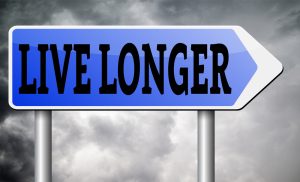 Human genetic engineering is going to change human life, anti-aging, and longevity medicine so radically, it is nearly impossible to imagine how profound the results will transform medicine and civilization.
Human genetic engineering is going to change human life, anti-aging, and longevity medicine so radically, it is nearly impossible to imagine how profound the results will transform medicine and civilization.
In theory, human genetic engineering works like this: each breakthrough in genetic science should extend your lifespan long enough for the next discovery to come, which would extend your lifespan even longer.
The accumulated life extension of future biotechnology, bioscience, bioengineering, and human genetic engineering should theoretically provide a kind of longevity on the plateau of immortality (potentially).
Therefore, the next stage, era, or period of anti-aging medicine after Hormone Optimization, aka HRT, will be called HGE or HGO (Human Genetic Engineering or Human Genetic Optimization), promises to extend the human lifespan more than just 10 to 20 years.
The youthfulness that HRT promotes and promises could potentially extend human lifespans more than 10++ fold. Currently, scientists modifying the DNA of non-human species have found novel ways of extending youthful living in animals, insects, bacteria, and yeast up to eight to tenfold.
When scientists can consistently do this for monkeys, humans will be next. This kind of science is right around the corner.
HGH and Testosterone is an essential hormone for both males and females. It protects the cardiovascular system, fights obesity, develops and maintains reproductive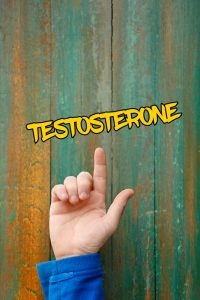 health and sexual potency, supports the brain, bones, and muscles, and improves mood and memory.
health and sexual potency, supports the brain, bones, and muscles, and improves mood and memory.
Testosterone production by the ovaries, adrenals, testicles, and even the conversion of testosterone on peripheral tissues (from DHEA, androstenedione), all decline with "normal" aging.
Contact Us Today For A Free Consultation
Dear Patient,
Once you have completing the above contact form, for security purposes and confirmation, please confirm your information by calling us.
Please call now: 1-800-380-5339.
Welcoming You To Our Clinic, Professor Tom Henderson.

- A Major Breakthrough in Anti-Aging Science is now Reality! [Last Updated On: October 12th, 2024] [Originally Added On: September 19th, 2020]
- All the Different Brands of Human Growth Hormone -- Guide [Last Updated On: February 10th, 2025] [Originally Added On: September 21st, 2020]
- Weight Loss Through HGH [Last Updated On: February 10th, 2025] [Originally Added On: September 24th, 2020]
- Did You Know: Sarcopenia is Increasing Among Senior Citizens at a Blistering Pace? [Last Updated On: February 8th, 2025] [Originally Added On: October 5th, 2020]
- Growth Hormone and Sleep [Last Updated On: February 9th, 2025] [Originally Added On: October 8th, 2020]
- Hormone Replacement Therapy Program Protocol Diary [Last Updated On: October 11th, 2024] [Originally Added On: October 9th, 2020]
- The Curse of Non-Alcoholic Fatty Liver Disease [Last Updated On: February 6th, 2025] [Originally Added On: October 11th, 2020]
- How Can I Get More HGH (Human Growth Hormone) Naturally? [Last Updated On: July 27th, 2024] [Originally Added On: August 16th, 2021]
- Cholesterol and Growth Hormone...the Truth May Surprise You! [Last Updated On: February 5th, 2025] [Originally Added On: October 7th, 2021]
- Growth Hormone FAQ's [Last Updated On: February 4th, 2025] [Originally Added On: October 8th, 2021]
- Growth Hormone: A powerful tool to battle Erectile Dysfunction [Last Updated On: February 6th, 2025] [Originally Added On: October 8th, 2021]
- How to buy Growth Hormone [Last Updated On: February 7th, 2025] [Originally Added On: October 8th, 2021]
- Testosterone Battles Diabetes [Last Updated On: February 3rd, 2025] [Originally Added On: October 8th, 2021]
- Growth Hormone protects your Adrenal Glands [Last Updated On: February 4th, 2025] [Originally Added On: October 8th, 2021]
- Buy Growth Hormone! [Last Updated On: February 9th, 2025] [Originally Added On: October 8th, 2021]
- Growth Hormone reduces Heartburn [Last Updated On: February 5th, 2025] [Originally Added On: October 8th, 2021]
- The Link Between Diabetes and Growth Hormone [Last Updated On: February 7th, 2025] [Originally Added On: October 8th, 2021]
- Growth Hormone and Nutraceuticals [Last Updated On: February 8th, 2025] [Originally Added On: October 8th, 2021]
- Growth Hormone and Depression [Last Updated On: February 3rd, 2025] [Originally Added On: October 11th, 2021]
- Growth Hormone and the Pituitary Gland [Last Updated On: February 1st, 2025] [Originally Added On: October 11th, 2021]
- Growth Hormone and Calorie Restriction. [Last Updated On: February 2nd, 2025] [Originally Added On: October 11th, 2021]
- Growth Hormone and Healthy Living Can Add Years to Your Life! [Last Updated On: February 2nd, 2025] [Originally Added On: October 11th, 2021]
- Welcome to Growth Hormone and Testosterone Therapy [Last Updated On: December 27th, 2024] [Originally Added On: October 11th, 2021]
- HGH Female Blood Panel [Last Updated On: July 9th, 2022] [Originally Added On: October 28th, 2021]
